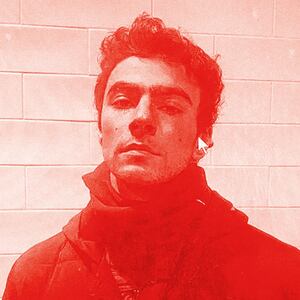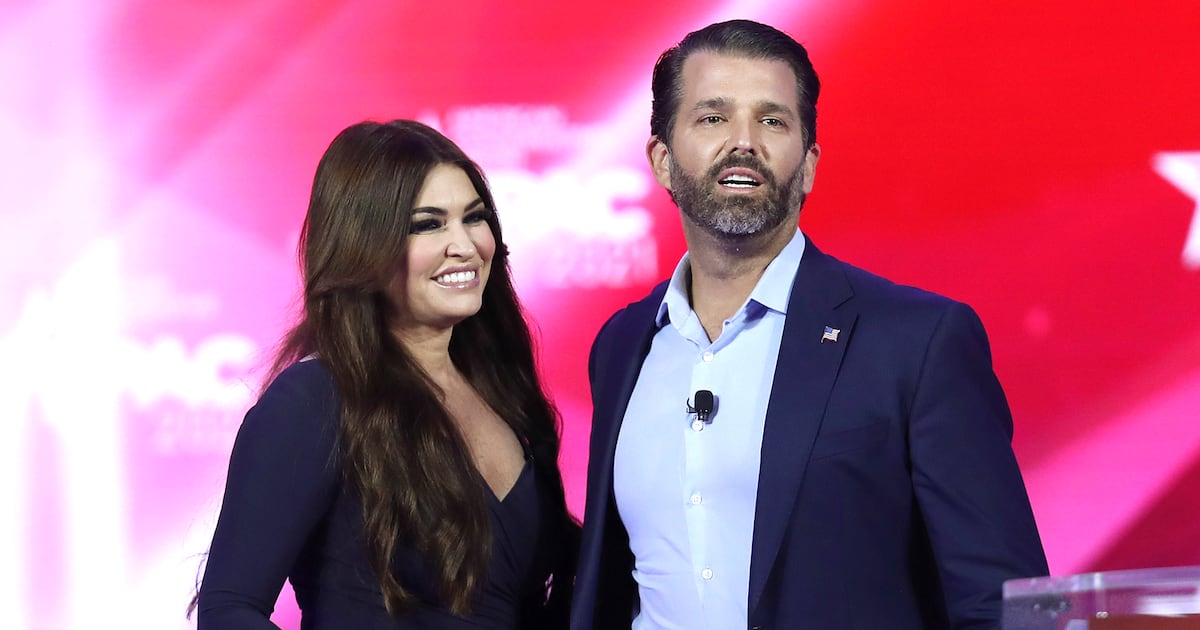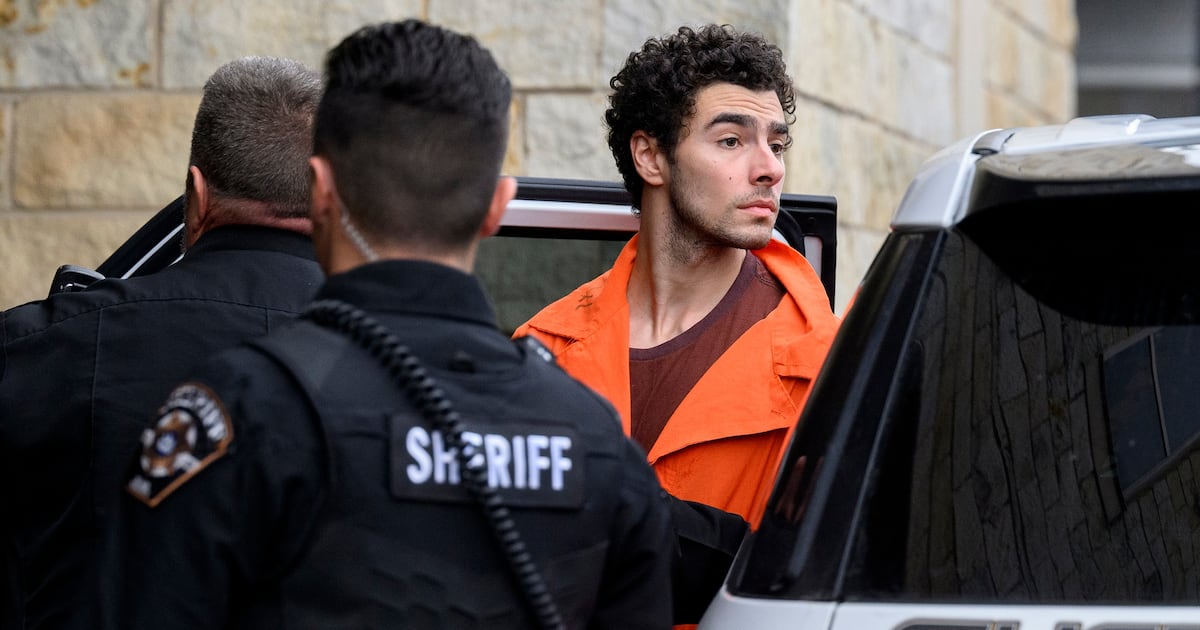The paternal grandfather of accused CEO killer Luigi Mangione was once described in a newspaper profile as “relaxed, warm, gracious and hospitable”—until he discussed government bureaucracy.
“His demeanor changes,” the 1995 article in the Baltimore Sun said of Nicholas Mangione. “His body tenses and his voice becomes agitated. In that moment, he appears the embodiment of anger.”
The elder Mangione died at 83 in 2008, but his ability to spark into fury itself seems to live on in his 26-year-old grandson. Luigi demonstrated that as he was led in handcuffs and an orange jumpsuit into a Hollidaysburg, Pennsylvania, courthouse on Tuesday afternoon.
ADVERTISEMENT
”This is completely unjust!! It’s an insult to the intelligence of the American people!” he cried out as cops pushed him inside, his thick eyebrows knitted.
As derived by the handwritten manifesto he was carrying when he was arrested, Luigi Mangione’s anger is provoked by what he terms the “corruption and greed” of the U.S. health-care system, which he describes as the “#1 most expensive” in the world while “we rank roughly #42 in life expectancy.”
He says that “evidently, I am the first to confront it with such brutal honesty.”

But the elder Mangione’s fury was born of a lifelong struggle against poverty and bigotry to build a dynasty—and achieve actual American greatness.
As recounted in the newspaper profile, Nicholas’ father, Louis, was an illiterate Italian immigrant who worked for the Baltimore water department. Louis had taken ill after he insisted on continuing to repair a broken water main during a storm.
“He was 42 and strong—a good, hard working man who never missed a day’s work during the Depression—but he caught pneumonia and died,” Nicholas told the Sun. “There was no welfare, no city pension. We had little help from outside. Once a week, my brother and I would get a bag of flour from the church.”
Nicholas sold newspapers and shopping bags while studying typing and shorthand. He was 15 when he went to work full-time as a clerk and bookkeeper. He was a month shy of his 18th birthday when he joined the Navy and saw heavy combat during World War II in the South Pacific aboard the USS Caperton.
After the war, he became a bricklayer and then a contractor. He married Mary Cuba, the daughter of a Sicilian immigrant ice-man. They had 10 children. Each new arrival meant he had to take on an additional project.
“Every time my wife had a baby, there was another job to build,” he told the newspaper.
His projects came to include hospitals and nursing homes and he started a string of assisted living facilities. He was becoming an indisputable success by the 1970s, but he still felt unwelcome when he played golf at two local country clubs.
“It was because I was Italian, plain and simple,” he said.
So he purchased his own, the Turf Valley Golf and Country Club. Some people questioned how an Italian could finance a $5 million undertaking.
“People thought I needed money from the Mafia to buy this place,” he told the Sun. “They asked me what family I belong to. I told them, ‘The Mangona family. The Mangione family of Baltimore County.’”
All 10 of his children—five boys and five girls—were married at Turf Valley and all 37 of their children, including Luigi, were born at Greater Baltimore Medical Center. The family has donated more than $1 million to the facility. The labor and delivery department has a Mangione High Risk Unit.
On Sundays, the Mangione family would gather for dinner and Nicholas could be his relaxed, warm, and hospitable self. But, the Sun noted, there was another Nicholas Mangione.
“The grandfatherly personal side is mostly private—shared by family and friends.” the newspaper said. “But the angry, combative, accusing side comes out in public, aimed at people who oppose, or attempt to slow his progress.”
“If people treat me in a fair and honest way, we get along fine,” he told the newspaper. “If they tell lies, my temper just gets the best of me.”
Among those who seemed to understand him and accept him on his own terms was Nancy Pelosi’s brother, Thomas D’Alesandro III, then Baltimore’s mayor.
“Nick Mangione is foremost identified as a family man,” he told the Sun. “That’s his calling card even before he became a successful businessman. He is maybe a little rough around the edges and maybe with an aggressive personality, but a man with a big heart … He earned his success the hard way.”
The grandfather marveled at his achievement.
“I didn’t have two nickels to rub together when my father died when I was 11, yet I still became a millionaire,” he said. “What other country can you do that?”
And all that meant his many children and grandchildren were also able to strive for success in the not-so-hard way. His grandson Luigi was able to attend the private Gilman School, then the University of Pennsylvania, free to follow his interests wherever they took him.
He did suffer some physical limitations as the result of an increasingly bothersome back. He ended up having surgery that was not as successful as he seems to have hoped. The easy way began to seem harder.
At the time, he ranged beyond his own case to study the American health-care system. His family’s nursing homes, under the umbrella of Lorien Health Services, had come up short on occasion, but had generally received top ratings from the U.S. News & World Report. But when he examined a bigger-than-big enterprise such as UnitedHealth Group, he discerned a villainscape where the priority was neither health nor care but profit.
“United is the… largest company in the US by market cap, behind only Apple, Google, Walmart. It has grown and grown, but has our life expectancy?” he observed in a handwritten manifesto police describe as a “claim of responsibility” that was found on him when he was arrested. He noted that America has the most expensive health-care system in the world, but ranks approximately 42nd in life expectancy.
“They continue to abuse our country for immense profit because the American public has allowed them to get away with it,” he wrote. “It is not an issue of awareness at this point, but clearly power games at play. Evidently I am the first to face it with such brutal honesty.”
He had not been known to be an angry person. He now seemed to react to perceived lies much as his grandfather had, but his honesty allegedly turned brutal in the physical sense.
Luigi had read the Unabomber’s manifesto, but in his own writings he indicated he had opted not to use explosives for fear of harming innocents. He decided that shooting was a better option.

In his writings, the accused assassin mused on the message it would send to “kill the CEO at his own bean counting conference.”
On Dec. 4, Brian Thompson, CEO of UnitedHealthCare—the primary insurance component of United Group—was fatally shot as he was about to enter his company’s annual investor conference.
On Monday morning, Luigi Mangione was arrested at a McDonald’s in Pennsylvania. He was being led into the courthouse on Tuesday afternoon when he suddenly seemed to become the embodiment of anger.
Only this was not the fury of a grandfather bent on building a dynasty and giving a better life to those who followed him—it was the anger that could lead a grandson to spend the rest of his life in prison for murder.







